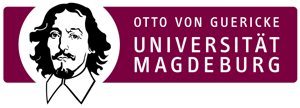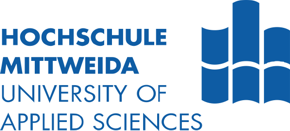
- Written by: Thomas Weise
On July 27, 2017, I gave the research talk Automating Scientific Research in Optimization at the Computational Intelligence Group of Prof. Dr. Rudolf Kruse at the Institute of Intelligent Cooperating Systems, Faculty of Computer Science of the Otto von Guericke University Magdeburg (OVGU, Otto-von-Guericke-Universität Magdeburg).
The Computational Intelligence Group has a tradition of more than twenty years. It is focused on intelligent data analysis using computational intelligence technologies, such as neural networks, fuzzy systems, evolutionary algorithms, Bayesian networks, machine learning (e.g., clustering), and approximate reasoning. The have conducted numerous fundamental research projects with support from DFG, COST, DAAD, and the EU as well as a wide variety of successful industry collaborations with companies such as BMW, Daimler, VW, Dresdner Bank, HDI, BT, Beiersdorf, SAP, and Siemens. They have published more than 35 books and 475 refereed papers. Recently, for instance, Prof. Kruse et al. published the second edition of their book Computational Intelligence: A Methodological Introduction (Springer, ISBN 978-1-4471-7294-9, doi:10.1007/978-1-4471-7296-3), which discusses neural networks, evolutionary algorithms, fuzzy systems, and Bayes networks. Remarkably, they also provide lecture slides for the whole book.
It was a real pleasure to visit this research group and a honor to meet Prof. Kruse and I really enjoyed our talk.

- Written by: Thomas Weise
On July 26, 2017, I presented our work on Automating Scientific Research in Optimization at the Institute of Applied Stochastics and Operations Research (IASOR) of the Mathematics branch of the Faculty of Mathematics/Computer Science and Mechanical Engineering of the Clausthal University of Technology (Technische Universität Clausthal) in Clausthal-Zellerfeld, Germany. The IASOR consists of four groups, Applied Statistics, Stochastic Models in Engineering Science, Stochastic Optimization, and the Discrete Optimization group.
The visit gave me the chance to have very nice talks with Prof. Dr. Stephan Westphal and Prof. Dr. Michael Kolonko.
Prof. Westphal leads the Discrete Optimization group, which is specialized in solving hard combinatorial problems, such as variants of the traveling umpire- and traveling tournament-, knapsack-, bin packing-, as well as other vehicle routing- and scheduling problems. Prof. Westphal is well-known for applying optimization methods to construct the gaming schedules of the German football and basketball leagues.
The Stochastic Optimization group of Prof. Dr. Michael Kolonko works on stochastic modeling and simulation in operations research, heuristic optimization methods, optimization and robustness of timetables in traffic networks and airport landing strips, as well as the simulation of particle mixtures. Moreover, they provide very nice teaching material in form of Java and JavaScript applets.
It is needless to say that there were many interesting topics and common interests to discuss with this outstanding group.

- Written by: Thomas Weise
On July 25, 2017, I gave my research talk on Automating Scientific Research in Optimization at the Simulation and Optimal Processes Group of Prof. Dr. Pu Li [李浦]. at the Institute for Automation and Systems Engineering, Department of Computer Science and Automation at the Technische Universität Ilmenau (TU Ilmenau) in Ilmenau, Germany.
The group contributes both fundamental as well as applied research. In terms of the former, they focus on the dynamic optimization of large systems, optimization under uncertainties, real-time optimization, and non-linear model-driven control. They apply their researcher to energy systems, autonomous driving, water management, systems biology, and process engineering. What is fascinating about this research group is that they combine several research fields of applied optimization which will have a huge future: The work on energy and water network optimization is directly relevant to the immediate challenges our society faces in the next few decades. Global warming causes problems with water supply and trying to reduce global warming means that we need to change and improve our way of obtaining, transmitting, and using (renewable) energy. Autonomous driving, on the other hand, is one of the trends which will change transportation and traffic significantly. Trying to optimize any complex real-world system, be it a energy or water network, the production lines in a factory or the logistics of an enterprise cannot be done efficiently without dealing with uncertainties since we make plans for the future but can never know the future exactly. Optimization of complex systems or of engineering designs often requires simulations.
I am thankful for the chance to present at this strong research group and to Prof. Li for arranging my talk. It definitely was a very nice meeting.

- Written by: Thomas Weise
On July 24, 2017, I gave a research talk at the Computational Intelligence Group of the Faculty of Applied Computer‐ and Biosciences, University of Applied Sciences Mittweida (HSMW, Hochschule Mittweida). During these days, the group hosts the 9th Mittweida Workshop on Computational Intelligence (MiWoCI) and Prof. Dr. Thomas Villmann, the group head and one of the two workshop organizer, kindly provided me a time slot at the workshop for my presentation*.
The workshop itself had a very international line up of both research and industry talks with researchers from the University of Groningen (The Netherlands), the Cluster of Excellence Cognitive Interaction Technology (CITEC) of the Bielefeld University (Germany), Porsche, the Honda Research Institute (Germany), the University of Applied Sciences Würzburg-Schweinfurt (FHWS, Germany), the Dresden (HTW, Germany) and of course the Computational Intelligence Group itself. I really regret that I could only attend the workshop at its first day. The talks that I could attend were all very interesting and underlined the excellent contributions that Computational Intelligence and Operations Research can make to the industry.
Visiting Mittweida also allowed me to get to know the Computational Intelligence Group and their research, which is mainly focused on secure classification of high-dimensional data and BigData with machine learning methods. They work on self-organizing maps, semi-supervised learning, fuzzy classification and clustering, information theoretic learning, non-standard metrics in vector quantization, prototype-based classification learning vector quantization (LVQ), Evolutionary Algorithms, and high-dimensional data analysis for, e.g., mass spectrometry data analysis in medicine as well as class visualization and projection. Like our institute, they work both on theoretical questions and practical applications.
Presenting and discussing our work in this environment of a workshop and an application-oriented research group, both on exactly our topic area, was a very pleasant experience and I want to than Prof. Villmann again for making this possible.

- Written by: Thomas Weise
On July 21, 2017, I have given the research talk "Automating Scientific Research in Optimization" at the Artificial Intelligence Group of the Faculty of Computer Science, Chemnitz University of Technology [Technische Universität Chemnitz] in Chemnitz, Germany. The host of the talk was Dr. Julien Vitay who welcomed me also in the name of Prof. Dr. Fred Hamker. I was particularly happy to come back here and present our work, as the TU Chemnitz is my old alma mater, the AI Group has a wide variety of very interesting projects, and I even presented in the very same room where I defended my Master's thesis work more than twelve years ago.
The group is renowned for its research on model-driven approaches for exploring visual perception and cognition, having contributed significantly to the topics of object recognition, conscious perception, attention, cognitive control of visual perception, and space perception. It also investigates novel deep learning technologies. Besides contribution much to fundamental research, the group also provides the open source software Artificial Neural Networks architect (ANNarchy), a parallel and hybrid simulator for distributed rate-coded or spiking neural networks written mainly in C++ and parallelized using openMP or CUDA. The group is furthermore associated with the Bernstein Center for Computational Neuroscience Berlin (bccn).
Like my talk yesterday at the Friedrich Schiller University in Jena, the talk was received with broad interest. I am very thankful to Dr. Vitay and Prof. Hamker for publicizing this presentation. The comprehensive thought exchanges before and after talk were also truly inspiring.
Read more: Research Talk at the Chemnitz University of Technology in Chemnitz, Germany
